Hi Deidre, Thanks for starting this great initiative! I recently posted on my LinkedIn page a series of videos that clearly highlight one of the environmental impacts of the non-pharmaceutical intervention (namely, the lockdown of countries). Using data from the Copernicus Sentinel-5P satellite, the videos show the nitrogen dioxide emissions using a 10-day moving average. The reduction is particularly visible after the start of the nation-wide quarantine in China and the full lockdown in Italy.
There also is an article on the Guardian with their animations from the same source, also including UK
On another (perhaps) positive note, the Executive Director of the International Energy Agency has released on Monday a commentary suggesting the governments to put clean energy at the heart of stimulus plans to counter the coronavirus crisis Here’s the link
In his commentary, he suggests that the global energy-related CO2 emissions level may fall in 2020 (it flattened in 2019) thanks to the coronavirus pandemic. I personally believe it would be quite interesting to measure how this level of emissions helps achieving the Paris Agreement targets to let the governments and public understand the level of transformation in the society should be planned to face the way-bigger challenge of climate change.
Stay safe everyone!
Cheers, Mauro
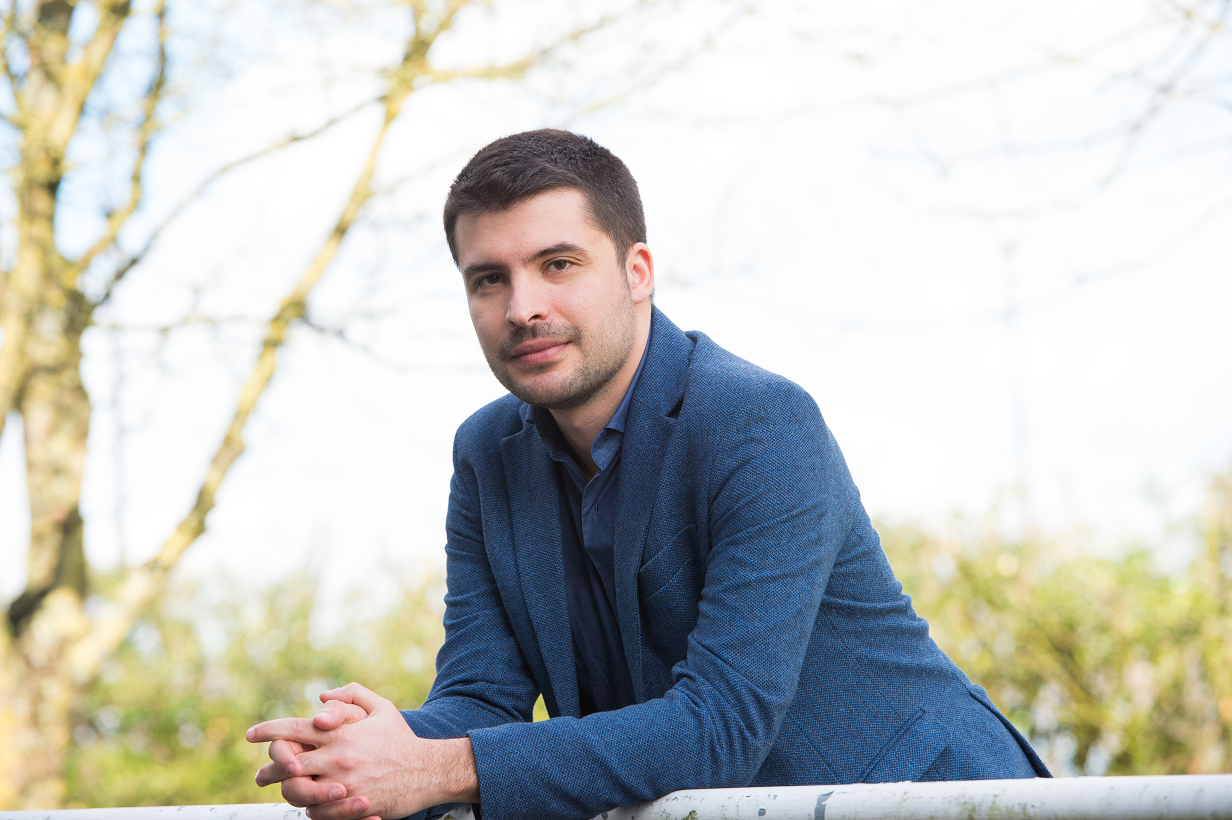
Hi All,
I know it’s not my turn yet, but I’d like to share nevertheless (Rocio you can have my slot ^^ sorry 😊) Just to be clear, with what I’m saying below, I’m not suggesting that anyone of us doesn’t care about social sustainability, and I find the discussion about what a coronarvirus-like response to the climate crisis could look like interesting and worth discussing – in fact, I’ve thought quite a bit on how to leverage covid to promote more radical and faster change in the organisation I’m working for.
However, when discussing this, especially when tweeting or posting online, please be sensitive. Lockdown around the globe already has and will put an incredible large number of people in great misery. People who have lost their job and income, people who are self-employed, run small enterprises in the service sector and see their existence threatened, those working and living in precarious conditions and won’t get a bail-out from their government. In Colombia, as in many other developing economies, about 50% of the workforce is operating in the informal sector, many living off their daily wages. I don’t even want to imagine the disastrous consequences a 3-4 week lockdown enforced by police and government would have there. Here is an article and a facebook post saying more or less the same but in a more eloquent form.
I’ve unfollowed several “ecowarrior” IG accounts in the past couple of weeks that I’ve seen showing “before and after” images/illustrations of COVID19, one of a sad, smoggy, polluted earth before, and somehow, a happy, shiny earth after. I know there is some merit in looking at the “bright side”, but sometimes, it’s more important to practice some sensitivity too.
Some say, look at the positive things COVID19 has brought – cleaner air, reduced carbon emissions and more wildlife. And while I am in favour of those ends, I am not in favour of the means.
I would like to imagine a world when we do have those environmental conditions — but also more food on people’s tables, social safety nets for workers, a good healthcare system, and a system that properly acknowledges and supports healthcare workers who put their lives on the line, rather than idiotic senators who we have yet to hold accountable.
Happy weekend everyone,
Nicola Nicola Andreij Rieg

Hi All
After many weeks of increasingly grim news, and with many more to come, I have been thinking about how I am responding to the stories and headlines. So my thoughts are a bit more personal….
Trying not to be swept away on a tide of terrible news…
Amidst all the Trumpisms, the memes, the gruesome league tables of death, stories of isolation and a tsunami of social media gossip, I have been drawn to seek relief in other headlines. Some are clearly related; the extraordinary speed and scale of scientific focus on COVID-19; identifying its genome, modelling pandemic spread and the number of papers that have been published open access, pre-peer review. All are reasons to be impressed and hopeful. There also are fantastic cases of individual ingenuity as people find ways to solve problems we are all struggling with. The vast global scale, urgency and dramatic action are staggering. Political systems are being re-shaped.
And there are climate change commentators who are asking ‘if we can do all this………’.
Other headlines feel surprising, reminding me the of big issues, pre-COVID. Was it only a month ago that plastic was headline news? A recent paper published on the ingestion of plastics by sea mammals and birds that helps map the impact of plastic types was tucked away in ‘Science’ and another report (LCA based) identified a positive outcome in whole life emissions of electric vehicles when compared to petrol and diesel. No response yet from industry lobbyists. But one article stood out, mainly because it included a word rarely used by the BBC – ‘gobsmacked’ (slang for open mouthed, lost for words – generally a sense of disbelief). And who caused the BBC environment correspondent such shock; Grant Shapps, the UK Minister for Transport. In the Departments most recent report ‘Decarbonising Transport’ (startling in itself), he began by illustrating a vision of the future where ‘public transport and active travel will be the natural first choice for our daily activities’. Wow! It isn’t policy….I know it’s just an outline for consultation, but it offers a glimmer of a different future, and for me, that’s more than enough at the moment – Link to article
Link to the Department of transport document
Best wishes to all
Erica
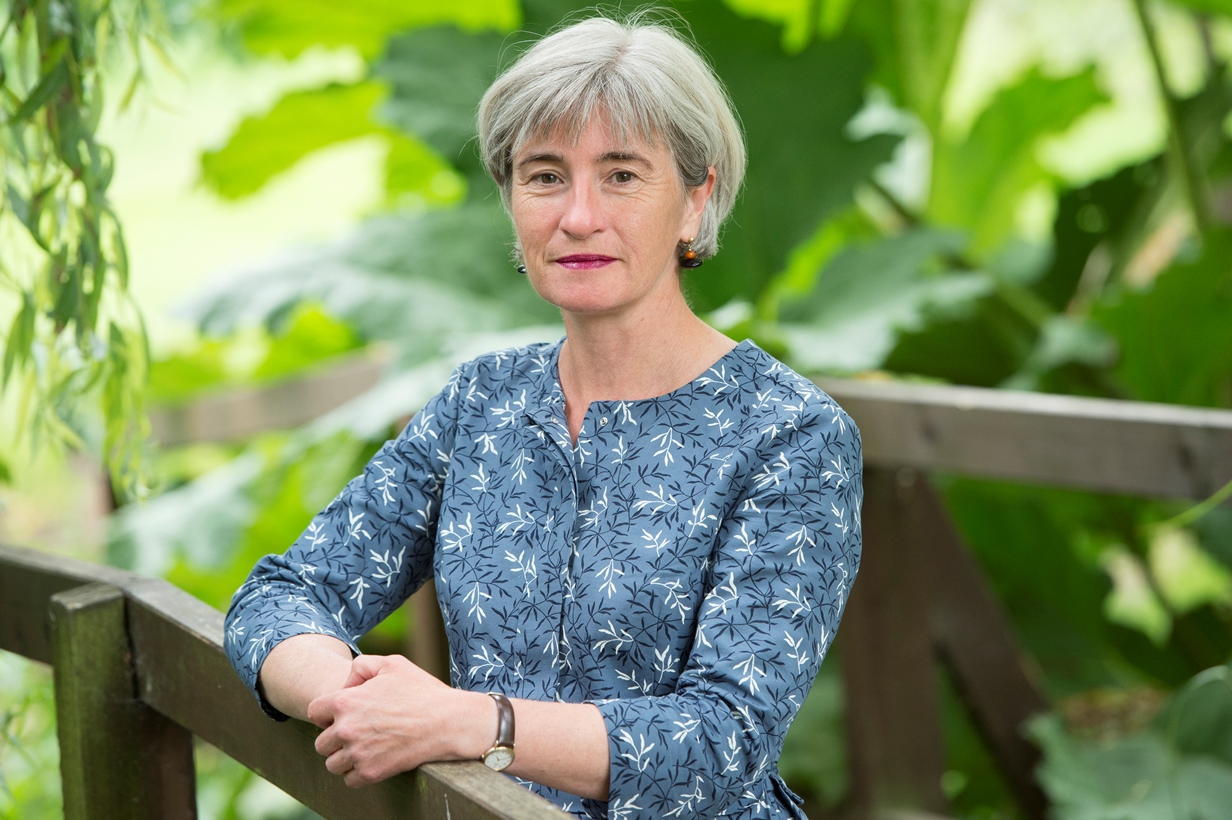
Hi All
So after Erica used the story I was going to send (well worth a read for anyone who hasn’t, as it potentially has some huge implications for the UK). I’ve been looking around for some other good news hidden among the bad.
For quite a few years there has been a small drive to digitize the UK’s historical handwritten rainfall records, stretching back for over 200 years. However, this had only managed to reach back to the 60s. Earlier this week a programme was launched to make it easier for volunteers stuck at home to help speed up the process, and, as per our national obsession with rain, the UK has really brought into this, digitising 3 decades in just 4 days (2 million separate data points, each entered by 4 volunteers). Once complete this will form one of the biggest and most continuous environmental records on the planet.
The mind shudders at the idea of doing 8 million data entries, but i’m sure there will be some interesting studies and results that come from all of this.
Self-isolation proves a boon to rainfall project – BBC News Scientists have been amazed at the public’s response to help digitise the UK’s old rainfall records. Handwritten numbers on documents dating back 200 years are being transferred to a spreadsheet … www.bbc.co.uk
Kind Regards
James Daly

Morning everyone,
Myself and Dan are avoiding news sites at the moment for our own sanity so thanks for all the positive links being sent through 🙂
Apologies, I have a slightly different take in order to resist the urge to scroll through Twitter, BBC etc.
I’ve written you all a terrible poem! Inspired by making use of our local green spaces, and even included some pictures. I’m sorry in advance – except it did make me laugh whilst writing it.
Ode to our green spaces Tarmac streets, brick houses and concrete bridges. In London, nature can be hard to come by. Sunshine means packing up the car to visit the countryside. However now it’s time to appreciate our local green.
I have a small park nearby. Usually forgotten and unnoticed. If I run, I drive to a big Parkrun. If I walk, I drive to Epping Forest. However now I walk and run in my small park.
It has daffodils. It has an empty playground and tennis court. I think to myself, one day I’ll go and play some sport. However, for now the trees in blossom keep me entertained.
You’ve brightened my day with flora. You’ve given me a space to walk, run and see some new faces. You’ve reminded me to appreciate our local green spaces. And find the nature amongst the urban.
Thank you small park.
Happy Friday Everyone!!
Keep safe and well,
Ceri xx

Hi all
Hope you are all well and get to enjoy a bit of lovely weather recently. I just want to share a bit of personal realisation during the lockdown as I read through a book mentioned the ‘Reverse Philosophy’. It is basically a general idea of that in order to gain something positive we have to experience something negative. It could be that you have to experience muscle pain and tiredness during workout in order to build more muscles, as well as that failures give you more positive insights on where things went wrong.
The pandemic has led to a plethora of different negative experiences for many: job loss, loneliness, depression, confusion and bereavement and many more. But the negative experiences also create many opportunities for reflect and rethink. As Lawrence said, many people have started to engage with nature more often. Some has decided to pick up new hobbies which they never found time for. Some managed to spend more time with their family and have a break from their ceaseless career marathon. Also, the outbreak pandemic teaches us the potential risks with wild animal trading and vulnerability of our medical system and economy under a massive shock.
For decades we have conditioned ourselves to ‘pursue happiness’. But regardless happiness for individual or the society as a whole it never comes without pain, lessons and efforts. Instead, we need to teach ourselves how to ‘enjoy our problems’ because they are indicative of actions required which will lead to positive changes.
This perspective has made me calmer and focused on daily lives and I hope you enjoy my spin on this topic. And below is a picture of birthday gift (just the display box) I got last weekend!
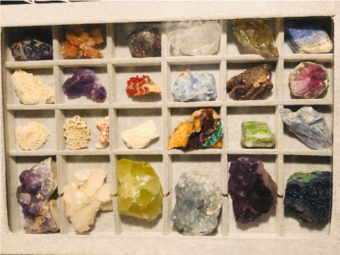
Stay well, Alex

Hi all,
I believe I’m stealing someone’s turn today, but I just read an article that I hope you will find as interesting as I did.
The first thing you must know to understand my excitement is the following: I believed that the Coronavirus crisis will have a negative impact on sustainability. I had no data to support this, other than we, human beings, haven’t got enough attention span to worry for more than two things at the same time (that’s me on an optimistic day). The second thing you should know is that, in my experience, Spain (and I directly accuse Spanish people) hasn’t got a good curriculum about taking care of the environment. It’s a country that has always been behind Europe in environmental matters, and I believed many people didn’t give a second thought about climate change, plastic pollution, etc, etc.
And then, I stumbled upon the news article below, something that not a lot of people in the world will ever read (firstly, is in Spanish, secondly, is in the newsletter of an environmental institution in Spain). It says that ‘Environment-related Google searchers (in Spain) have increased by135% in a year’. Also, they rose by 20% at the beginning of the lockdown, compared with the month before (by ‘environmental-related Google searches’ they mean searches about green energy and climate change). They also conducted 2,000 surveys, and 80% of the respondents were interested in environment and sustainability, 84% were worried about climate change, and 78% consider important or very important to do something about the climate crisis.
You may think ‘Oh well, actually it’s not THAT impressive’. I’m telling you, if the people in a country like Spain are starting to awaken – even amid the Coronavirus crisis – about climate change and carbon emissions, I believe we are in a good track. I believe it so much that I stole a turn in the Covid19 initiative. I believe it so much that I dared to send this, even though I can’t compete with the amazing narrative, analysis and originality that has been shared in this email thread. Keep doing what you do, slowly but surely we can win this battle. Read here
Best wishes, Rocio

Hi all,
As we get towards the end of the list, it becomes increasingly difficult to think of something original. Nonetheless, here goes…
Firstly, I realise that we are all based in very different companies. I know some companies will be slowing down operations, furloughing some of the workforce and cutting long-term spending, whilst other companies will be busier and doing better than ever. I also realise we are all positioned at different points in our companies, so some of us may be more sheltered from the front line impacts of furloughing or a slowdown in work. That’s before we even look at how Covid-19 affects us each at home.
Regardless of these factors, however, we all face the challenge of how we communicate and prioritise sustainability initiatives at work during this coronavirus crisis. As has already been highlighted in this conversation, any sustainability ‘silver linings’ from Covid-19 still come under a dark cloud of social inequality, business failures and deaths. This poses the question, how can we best communicate a sustainability message that acknowledges, and is sympathetic to, both these sustainability angles? This is particularly important as we look to ensure sustainability is incorporated in any company recovery, like the #BuildBackBetter campaign, rather than being sidelined for a profit-at-any-cost mentality.
To this end, I have attached two articles: one on how sustainability professionals can communicate through this crisis and one on advice from the construction industry on being better leaders during the crisis. I would emphasise that, as good as these articles are, they are only opinions and recommendations. Of course, in reality, many variables will control how we each communicate sustainability at work. Nonetheless, I think it is a worthy conversation for us to have if we are to ensure a truly sustainable recovery.
All the best, Luke

Hi to all peeps out there,
Hoping that this finds you in good health and spirits. The below is a mash-up of thoughts on language, leadership and genders. Hope you enjoy.
As the pandemic has been sweeping across many countries, it has become apparent that war-time language is back in fashion. This rhetoric is common among male leaders and is certainly compelling: it identifies the enemy, front-line warriors and traitors, and appeals to citizens’ sense of duty to serve their country. Aside from the fact that B. Johnson really likes Churchill, this language can hardly be justified. It incites nationalism, can lead to battle fatigue (the momentum of extreme rapid response cannot be maintained) and in less democratically stable countries leads to authoritarian power grabs (I’m not going to namedrop here). The damage goes further, when those affected by the disease are said to be ‘battling it’. Going into battle or being brave implies having a choice and a level of control, none of which patients or their relatives have.
So, what are the opposite examples of that? Some of the countries with most highly praised responses happen to be governed by women. They are hailed for being honest, decisive, in tune with science, but also… loving (say whaaaat?!). Empathy and care in their language during press conferences, including an occasional direct address to children, seemed to have done wonders for the public’s morale, compliance with the new rules and generally people rediscovering their altruistic and community spirit. The fact that we are so surprised to see people being nice to each other is more to do with how elections are won (cue Brexit), than the true nature of society, but that’s another essay altogether. Now, I hear you, there have been incredible examples of altruism and community spirit here in the B. Johnson’s UK. But I personally see it is as happening in opposition and despite the government’s approach to public messaging, not because of it. I could be wrong.
Anyway, the tongue in cheek conclusion is: leaders can benefit from a thesaurus to expand their vocabulary, compassion and love rock, and men should always listen to women. But we knew that one anyway.
Have a (safe!) lovely Friday.
Kind regards Yulia
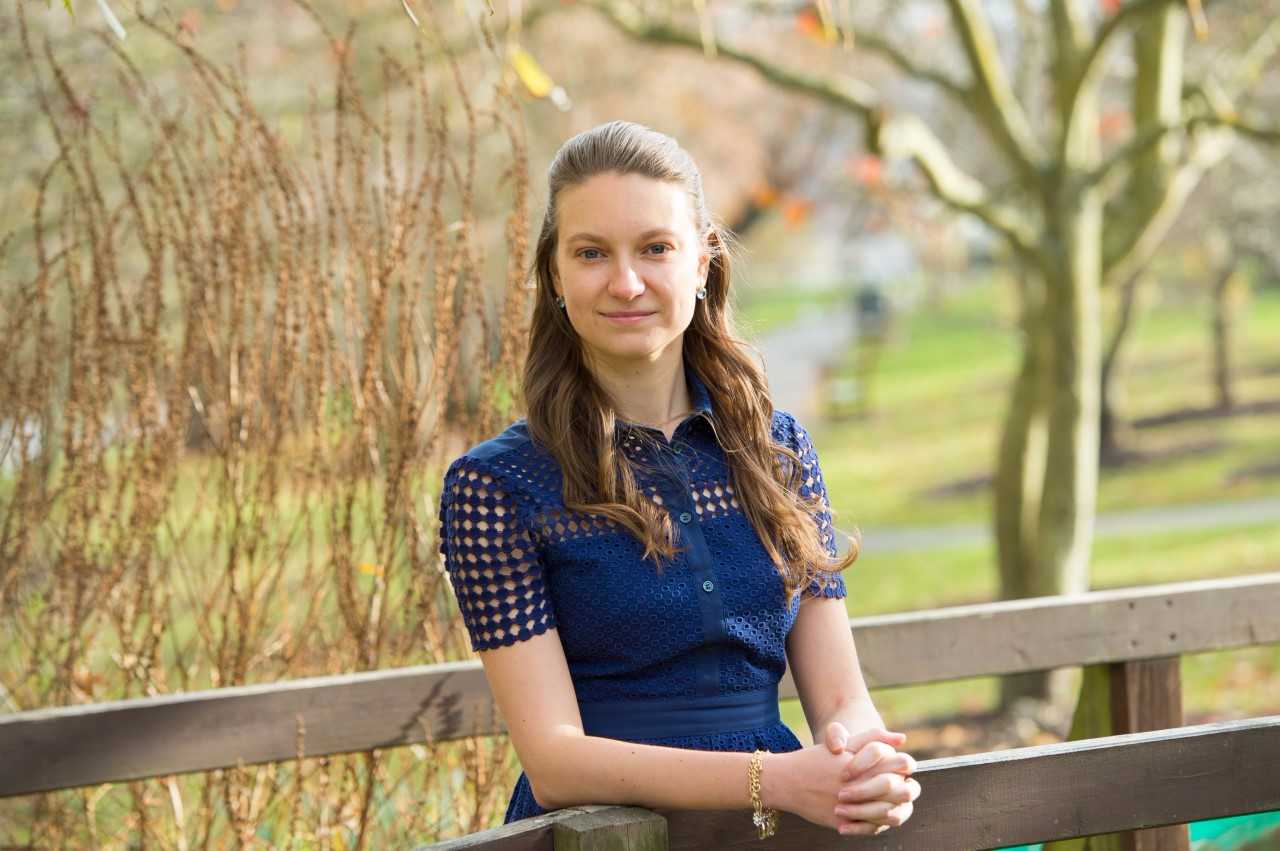
Afternoon All,
No doubt you’re all aware that today marks the 50th Anniversary of the very first Earth Day. Amidst all the talk of whether COVID-19 is going to act as a catalyst for system change or merely a distraction from environmental crisis, I’d like to draw your attention away from the macro-scale economic questions for a brief moment and talk (in a rather an unscientific way) about some of the more localised impacts the virus is having and may continue to have.
I have personally derived a great deal of relief and enjoyment from the time I have spent in our (small but mighty) garden here in Guildford and from the walks and runs (only one per day of course) that have taken us out of town into Surrey’s beautiful (and fantastically accessible/walkable) countryside. Being, as I am, something of a ‘hippie’ and someone who was already into long walks (and silly outfits), it comes as no surprise that I would say/think/do these things. What is much more eyebrow-raising is the fact that there seems to have been such a spike in the number of other people engaging with nature through spending more time in their gardens and through visits to greenspaces/the countryside who might otherwise not. Whilst I am quite sure that the sunny weather explains this at least partially, I can’t help but sense that the lockdown is contributing a little, if not a lot. Perhaps now people are rediscovering the joy of being outside for the sake of it rather than stepping out of their front doors exclusively with the intention of going to work, meeting someone or buying something. Such passive experiences of nature may also provide important opportunities for solace and reflection for those struggling with their mental health or with difficult home environments.
Active engagement with nature via gardening and tending to houseplants appears to be spiking too with gardening wares and houseplants selling out online. In these lockdown conditions, it is unsurprising to me that people are seeking out tactile activities which pull them away from screens and give them an excuse to get their hands dirty. I suspect that this may also explain why the bakery section of Waitrose is cleaned out on a pretty much daily basis (anyone got any spare vanilla extract?) Importantly, these activities, along with visits to parks/nature reserves, provide opportunities for connecting with nature both actively and passively, benefitting mental/physical wellbeing and even fostering a greater sense of affinity for, or stewardship over, the natural world. Crucially, benefitting from these experiences depends on one’s access to them and as countries all over the world are forced into lockdown, people are becoming more acutely aware of inequalities in access to both private amenity (gardens, for example) and public green/natural spaces (nature reserves, parks etc.) The public health benefits of these natural spaces are well understood, along with their diminishing availability/accessibility, particular for the disadvantaged among us. If before this was not seen as a major societal injustice, I am at least a little more hopeful that it may be seen as such in the months and years to come.
Our road is now one of many in Guildford which have their own WhatsApp groups for residents, an initiative that has grown out of the current crisis as a means of keeping neighbours in touch. It seems to me that there is now more of a sense of community on Recreation Road than there was before the lockdown began with residents now sharing gardening equipment and offering unwanted food/drink to each other. This heightened level of community engagement provides opportunities to reduce waste, but also to foster a sense of pride in the area, its people and its surroundings, something that is often hard to achieve in neighbourhoods such as mine which consist largely of rented accommodation and have a high turnover of residents. It is something that, in my mind at least, is a fundamental precondition for sustainability. How can we motivate people to expand their sphere of moral concern across the globe and project it 20-30 years into the future if it doesn’t yet stretch as far as the end of the street?
Being made constantly aware of a crisis which is affecting the human population at a global scale whilst remaining within the confines of one’s own house/neighbourhood can be confusing and disorientating. I would invite all of you to remain mindful of the global situation, but to take the opportunity to tend to your homes/families/relationships and to reach out to those around you who may need help doing the same. This is how we can start to build true resilience from the ground up.
Peace and love,
LC

Hi all,
Hope you’re doing well and had a lovely and relaxing Easter break 😊
I have enjoyed seeing the news from sustainability leaders and outlets, and am pleasantly surprised that now, more than ever, we seem to be singing from the same hymn book – calling for systems change with renewed energy, and a bit of a move away from single issue foci such as climate, which I’m thrilled about.
There’s also a large number of opinion pieces looking toward the future, and I wanted to share this one which lays out different potential futures for our economic system. Will this be the end of neoliberalism? Personally I think probably not quite yet – we’d need far more shocks of this magnitude, occurring closely together in time – but interesting to consider nonetheless. What’re your thoughts on the ‘Fortress Earth’ concept?
Best wishes, Jo

Hi All,
“You only find out who is swimming naked when the tide goes out” – Warren Buffett I’ve seen this quote used a few times now to describe the impact COVID-19 is having on the private sector and needless to say I quite like it. This crisis seems to have shone a light on the social aspect of businesses’ ESG performance, an area which often gets overlooked as investors focus on the popular environmental and financially salient governance aspects of a firm’s operations.
I’ve found 2 articles which I think highlight this impact well; one from Responsible Investor which discusses the need for firms to consider the indirect ESG risks associated with a lack of humanitarian concerns in their sub-tier supply chains link here.
The second is a piece of research from Serafeim et al (I’d recommend you look into his other work if you’re interested into the business case for ethics) which finds companies that have responded in a more socially responsible manner to the crisis have weathered it better than those who have put executive profits above the wellbeing of their staff link here .
Also, just because it would seem wrong for me not to mention this (apologies again if anyone else already has), Zoom Technologies stock value increased by around 240% in a matter of weeks during the crisis. However, this was due to investor error as it is completely unrelated to Zoom Video Communications which rose around 50% in same timeframe. whoops.
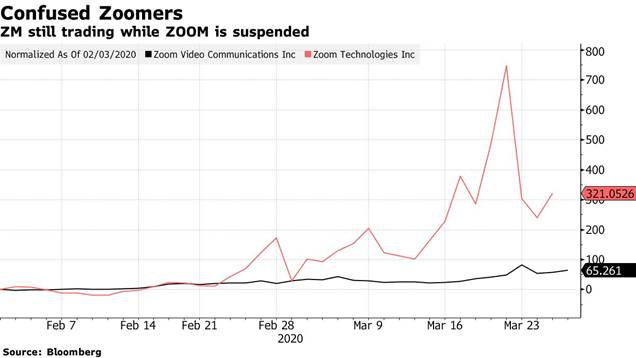
Kind regards, Harry

